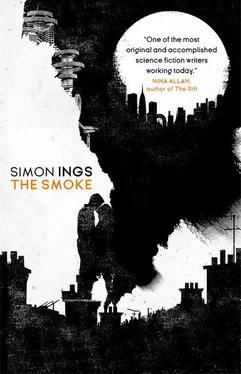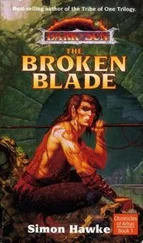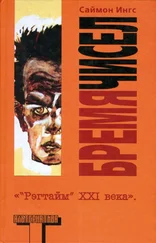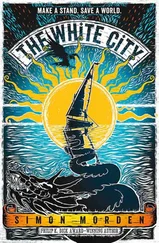With the drive gone, they knew they were doomed. Impossible to convince a crew so highly trained that a stable orbit was achievable now. Having flung itself from its broken but still-pumping drive, the accommodation module stood no chance of survival. They had only to look out of the frigate’s many generously proportioned portholes, where the view was impossible to parse: a whirligig of stars and clouds as the ship tumbled around the Earth in an ever-tightening spiral.
The accommodation module had thrusters meant to orientate it finely for docking with and undocking from its engine. Half these thrusters had been destroyed in the brutal act of separation, but the ones ranged forward remained and still held a little fuel. By line of sight, by trial and by error, the helmsman brought the ship about and steady on its axis. The awful Earth turned beneath and about them. The stars, doused by Earthlight, went out one by one. The crew waited for nightside, and a chance to hide in their minds from the planetary mass that would in a very little while embrace and consume them. But nightside did not come, and the Earth swung about them like a big, bright, smothering parent as if illuminated by its own light.
Of the sun, by some eccentricity of their turn and trajectory, there was no sign.
What further disaster has befallen the frigate, James cannot begin to guess, embroiled as he is in the event of it. He can only witness: a somehow undying eye.
* * *
Shocked out of the capacity for further shock, Jim watches with a feeling at once profound and nameless – a great annihilating wave of sensation – as the ship unfolds itself, an aluminium origami reversing itself into sheets of base metal. The flattened and unwoven plates of the ship turn on a mutual axis, plates striking plates without a sound, so that all are sent spinning on syncopated rhythms, turning to the light and knifing into the dark. A complex visual score, lacking all edge of violence, unfolds before his somehow still-working eyes. James grows drowsy. He closes his eyes.
And opens them, shaking, breath heaving, as the enormity of his state comes upon him. Where is everyone? How is it that he is pulling away from all this? What explains his steady withdrawal?
Refocusing, hunting for clues, he witnesses further mysteries. The wreck has begun to foam. White froth emerges from every intact hole in the dismantled craft. Once the foam has dribbled off, each hole yawns, a distorted, screaming mouth, folds open, turns inside out and unwinds into a kind of flower: its petals are metal surfaces, and a bouquet of tangled wires and mangled ducts serves for sexual parts. All these materials are sorted as he watches, bundled and batched; the flowers are picked and pulled apart – she loves me, she loves me not – and it comes to him that the Victory is being dismantled and sorted by agents which, at this distance, are too small for him to see.
The froth, meanwhile, floating free of the ship, has formed lines, and these lines, like trails of spittle, like spawn, lead away from the ship; they are being pulled away from the ship, and it comes to him, in his strange, somnolent, undying calm, that this soft white stuff, these little beads strung on strings like fish eggs in a deep black stream, these bright things, these bubbles, are the crew.
He cries out, and hears his cry, and hearing it, the madness of it, the act of hearing in a vacuum that must by now have killed him, makes him scream the more, and since screaming is not enough, his hands begin to paddle, he scrabbles for purchase in the dark, and his left hand, the hurt hand, the bruised hand, catches against a film, an unseeable skin, and sticks there. Pain wells under his bruised and loosened fingernail and makes his hand a ball of hurt, and his gaze, drawn to that hurt, fixes on his hand, stuck there in a clear glue. A plate of his ship, turning to catch the light, appears as a sheet of light beyond his hand, and where his hand is stuck, there in the dark, the sheet twists, warps as through a lens, and it comes to him that he is in a bubble, breathing, screaming, that he is embraced within an egg, and sensing this, his bruised hand closes around the tissue it touched, and crumples it, and everything before him stretches and bends, the ship turns into streams of light, and above him the Earth itself vanishes in an ovoid blur.
Reaching with his other hand, his right hand, he grabs a fistful of that tegument and pulls himself forward, and the gluey stuff surrounding him folds itself upon his face and, screaming, he sees the material fog against his breath.
He is inside an egg. His tongue touches tasteless plastic stuff and he bites, desperate to be free, desperate to be dead, and something tears somewhere. He hears the air whine out and his ears pop and he begins to spin, tipping back into the violence of the world, a star no longer, but a lonely and unburdened man, riding a broken, bucking bubble in the dark.
The whining stops. The spinning world slows and steadies. The wreckage reappears, terrible in its tidiness: a palletised assortment of aluminium plates and drums of wire.
Jim breathes, and hears his breath. The bubble has mended itself. He reaches out again with both hands, steadier now, mystified by this bubble, and his hands meet gluey walls. He presses the walls wider: the egg gives a little, and the view before him wobbles. He lets go, and the world, or what there is of it – raw materials in space, turning in the light of Earth – recovers its shape.
He paddles around his little cocoon. He faces the sun, whose blaring light should blind and burn him, only to find that this quarter of his world is browned out. The material of his egg is responding to the sun’s glare, protecting him.
He inverts himself, looking for an edge to his strange and sustaining prison. A door. A valve.
He sees another egg, and another man inside it. And below that another. And another. He stares, counting the stream of bubbles rising from the deep, each one holding a man or a woman. The man in the bubble nearest him has already seen him. He gesticulates wildly, mouth open against the wall of his egg. James, absurdly, waves.
The stream of bubbles weaves about, new bubbles coming visible then drifting into shadow. Beyond his own string, other strings grow nearer, all gathering together in a braid. We’re saved , he thinks, we’re being saved , and the thought, which should comfort him, only fills him with a deeper fear. Saved how? And by whom?
A skull’s knowing rictus presses against the plastic just below Jim’s nose, and as he cries out and bucks away, a second skull, armed like the first with hands clown-spread beneath its neck, seizes hold of his bubble, nudges the other, and makes eyes at its companion. And such eyes! James has never seen such eyes before: eyes like stumpy telescopes on the zooms of pocket cameras.
The skulls, appearing out of nowhere, adhere to the wall of his egg with long, spatulate fingers, human, yet threaded with black lines as though tattooed with a map of the vessels running beneath the skin. The skulls are not human, but they must have begun that way. Products of the Gurwitsch ray, is Jim’s hysterical guess. An extreme fulfilment of Gurwitsch’s promise to ‘sculpt organic forms at will’. Their eyes shoot in and out and their necks, geared in ways that are not human, wobble their skulls about in strange and simple patterns, and it comes to Jim that the skulls are having a great time. That they are happy with their lot. That they are singing.
Jim backs away. The space outside his bubble is full of skulls suddenly, crowded with skulls, some adult, some belonging to children, some foetal and hardly formed at all, and as they swarm about his bubble, latching on with their big clown hands like so many putti , it comes to him that he has had enough of this, that this is not a rescue, and he has had enough, more than enough. Pressing his face into the plastic wall, he hears their shanty, fudged and softened, through the gluey skin – ‘Weigh, hey and up she rises’ – and with a snarl of hate he lunges and bites and tears a great mouthful of egg wall free and spits it out and feels the air rush out and the cold rush in and his ears explode and he cannot hear his laughter.
Читать дальше












